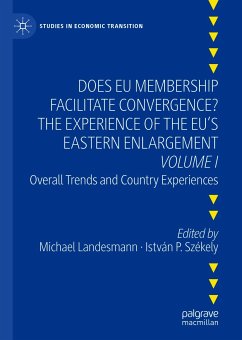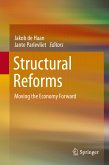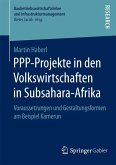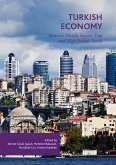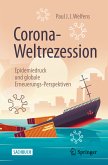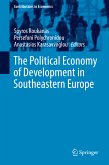This edited volume analyses the ways in which EU membership contributed to the convergence process of member countries in the Baltics, Central-Eastern and South-Eastern Europe, and also explores countries that are candidates for future EU membership. Importantly, EU membership stands to benefit member states and speed up convergence to the global frontier through several channels. These channels include trade, investment, finance, labour, and laws and institutions.
Convergence has also taken place at a global level and the speed of convergence of significant groups of low- and medium-income countries has never been as fast globally as it is today. This volume explores whether EU Member States from the region are converging faster as a result of their EU membership. Global integration has certainly played an important role. Industries have seen the creation of global value chains, which have championed trends also inside the EU. A large part of FDI flows and financial integration in the world have been persistent features of globalization. Have these countries experienced more intensive integration through these channels because of EU membership, with its much tighter institutional and political anchorage, than their fundamentals and global trends would suggest?
Convergence has also taken place at a global level and the speed of convergence of significant groups of low- and medium-income countries has never been as fast globally as it is today. This volume explores whether EU Member States from the region are converging faster as a result of their EU membership. Global integration has certainly played an important role. Industries have seen the creation of global value chains, which have championed trends also inside the EU. A large part of FDI flows and financial integration in the world have been persistent features of globalization. Have these countries experienced more intensive integration through these channels because of EU membership, with its much tighter institutional and political anchorage, than their fundamentals and global trends would suggest?
Dieser Download kann aus rechtlichen Gründen nur mit Rechnungsadresse in A, B, BG, CY, CZ, D, DK, EW, E, FIN, F, GR, HR, H, IRL, I, LT, L, LR, M, NL, PL, P, R, S, SLO, SK ausgeliefert werden.

